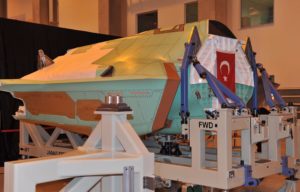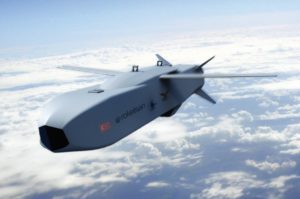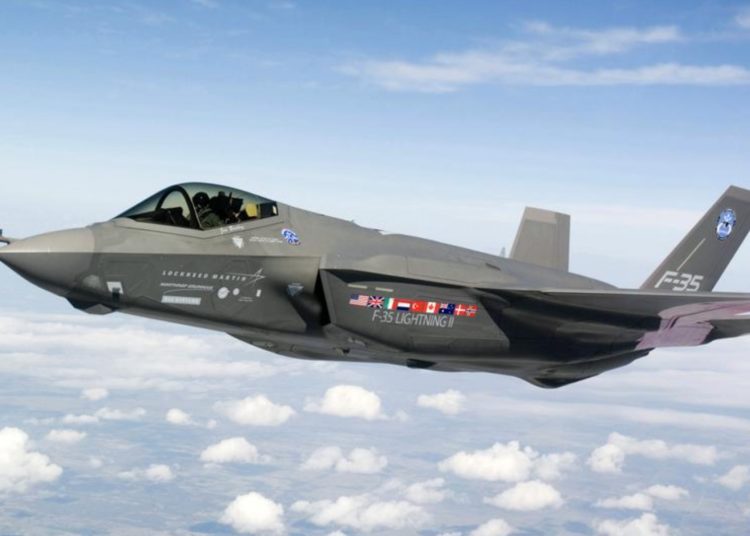Abdullah Bozkurt/Stockholm
The United States had to establish a new partnership for the development and production of the global F-35 new generation stealth fighter jet program to remove Turkey because of the lack of an expulsion provision in the original agreement, Nordic Monitor has learned.
The US pulled out of the memorandum of understanding (MOU) on the F-35 Lightning II Joint Strike Fighter and successfully lobbied all seven participating nations — the UK, Italy, the Netherlands, Australia, Denmark, Norway and Canada – to withdraw from the agreement, leaving Turkey alone and effectively rendering the original agreement useless.
The US move came after Turkey refused to withdraw from the agreement on its own and Washington decided to punish Ankara for its purchase of Russian S-400 long-range missiles despite repeated warnings from US officials to not go through with the deal. The MoU did not have an expulsion provision and only allowed changes to the agreement with all participating members’ approval.
Since Turkey would object to any amendment that would remove its participating status and veto any changes, the US came up with a different tactic to kick Turkey out while Ankara vowed to buy more Russian missiles and announced its interest in buying Russian fighter jets.
MoU that deals with dispute settlement required unanimous approval by all participating member states in the global F35 program:
İsmail Demir, head of the Presidency of the Defense Industry (Savunma Sanayii Baskanligi, SSB), Turkey’s top defense procurement agency, said on December 17 that Turkey is working with legal experts to look into options on how to challenge the US move to create a new MoU and drop the old one. He did not seem optimistic, however, admitting that Turkey needs lobbyists to convince US officials.
Demir was most likely referring to Turkey’s poor performance in lobbying the US Congress, where an anti-Turkey bloc has a strong position, and any proposal to sell arms to Turkey faces serious resistance that is difficult to overcome. Turkey has lost most of its friends on Capitol Hill over a growing number of differences including on human rights, fundamental freedoms and divergence on NATO goals.
Turkey originally joined the F-35 program on July 11, 2002, becoming the seventh international partner in the JSF Program, joining the United Kingdom, Italy, the Netherlands, Canada, Denmark and Norway when it signed the MoU on F-35s System Development and Demonstration (SDD), an initial phase of the joint strike fighter program. The framework agreement was signed by the SSB’s predecessor, the Undersecretariat for Defense Industry (Savunma Sanayi Müşteşarlığı, SSM), and the US Department of Defense. Turkey also entered into a host of complementary agreements, mainly financial in nature, that allowed it to work with the other participating nations.

Chapter 18 of the SDD agreement, which talks about amendments, withdrawal and termination, clearly stated that any changes including the termination of the MoU required the written approval of all participants and three months’ advance notice. The agreement notes that some obligations such as not sharing confidential information with third parties, use of acquired knowledge and security precautions would remain intact even if the MoU is terminated or a member state withdraws.
The MoU did not include any option to take the dispute to international arbitration by any member state, which means that Turkish President Recep Tayyip Erdoğan’s threat to sue the US was nothing but empty words. In June 2019 Erdoğan told reporters that his government would take the dispute to international arbitration to recover the $1.25 billion Turkey had spent on the project.
Chapter 16 of the MoU, which deals with dispute settlement, makes clear that no participating nation can take any dispute to any national or international court, person or institution for resolution. It says any dispute would be solved through negotiations, meaning that Turkey can’t even use its own courts to challenge the US decision.
What is more, the MoU has the power of an international agreement, which supersedes any domestic laws in Turkey according to the Turkish Constitution, if there seems to be a contradiction between the international conventions to which Turkey is a party and domestic legislation. Under Article 90 of the Turkish Constitution, the ratification of any international agreement concluded between states or other entities with international personality shall be subject to adoption by the Turkish Parliament by a law approving the ratification.
Turkish government document that explains why Turkey needed to purchase F-35 fighter jets to replace its aging F-4 and F-16 fleets:
In this case, the MoU was approved by the Turkish Parliament on October 28, 2005 and became Law No. 5425 after it was approved by the president on Nov. 2 and published in the Official Gazette on Nov. 6, 2005.
This is not the only MoU Turkey agreed to sign with regard to the F-35 program. On Jan. 25, 2007 Turkey also signed an MoU on the Production, Sustainment and Follow-On Development. (PSFD) phases of the F-35 program after the SDD was finalized. That agreement became part of Turkish law when parliament approved it as Law No. 5764 in May 2008 and it was published in the Official Gazette on May 31 of the same year. Similar provisions were also incorporated in the new MoU with regard to dispute settlement, amendments and withdrawals.
Turkey’s removal from F-35 program is a serious blow to the Turkish Air Force. According to a one-page white paper submitted to parliament by the government in 2007 to explain the reasoning behind the MoU, Turkey’s F-4s and F-16 Block-30 fighter jets would become obsolete by 2010 in terms of their technological capabilities and the cost of their operations. It presented the F-35 as the multi-role new generation stealth jet that Turkey would need to acquire.
It also underlined the importance of the role Turkey would have in manufacturing, development and procurement and other stages of the F-35 program.
Chapter 18 of the original framework agreement for F-35 program required unanimous approval for changes and termination of contracts:
A Level 2 participant in the project since 2002, Turkey had expressed its intention to buy 100 of the conventional take-off and landing (CTOL) F-35A jets, each of which the estimated would cost $135 million to produce. Some of the cost was expected to be offset through sub-contracts given to the Turkish defense industry for the production of the planes.
Ankara also signed another contract in 2012 for the delivery of two of the US-produced fighters by 2015, which was postponed for two years to 2017. It added another four in 2015 to the initial order. But the delivery and training of Turkish pilots were halted after Turkey’s persistence in acquiring the Russian missiles despite US objections.
According to Turkish Defense Minister Hulusi Akar, the expulsion will cost Turkey $11 billion in export revenue as some of the components for the F-35s will be no longer manufactured in Turkey. He said talks with US officials on recouping the $1.4 billon Turkey paid for the purchase of F35s were still ongoing. A US delegation went to Turkey on Oct. 27 to sort out the financial problems, and another meeting is scheduled to be held in the US in early 2022, according to the defense minister.

US company Lockheed Martin is the prime F-35 contractor with principal partners Northrop Grumman and BAE Systems. Turkey’s private and state-owned defense companies were awarded contracts with both Lockheed Martin and with other companies playing a major role in their production. Kale Aerospace, a Turkish company, launched plants worth a total of $50 million in Tuzla, a suburb of Istanbul, to start the production of 300 different JSF parts in 2008.
Turkey’s state enterprise TUSAŞ Aerospace Industries (TAI) manufactured F-35 jet center fuselages on contract with Northrop Grumman. Other Turkish companies that took part in the production included a defense industry giant that produces technology for the Turkish military (Aselsan), aviation hardware and software developer (Ayesaş), Dutch aviation company Fokker Elmo’s Turkish subsidiary Fokker Elmo Havacılık San. ve Tic. Ltd. Şti., the Air Electronics Industry (Havelsan), radar and electronic warfare company Mikes Microwave Electronic Systems (Mikes), Roketsan and the Scientific and Technological Research Council of Turkey (TÜBİTAK).
Although existing contracts are still in force, the Pentagon has reportedly developed contingencies to shift manufacturing outside of Turkey.
Removed from the F-35 program, Turkey is currently in talks with the US to purchase 40 Lockheed Martin F-16 jets and nearly 80 modernization kits to upgrade its F-16 fleet.
Full text of 2002 original framework MoU on Turkey’s joining the F-35 program:












